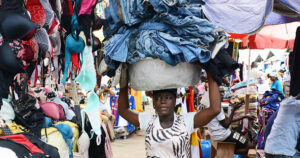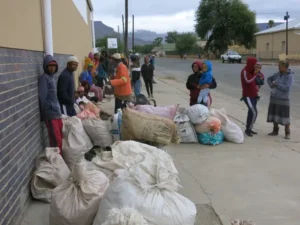[ad_1]
Early this month, Netflix launched in major cities in Africa and some other parts of the world.
This is good news to many people, young and old, who love entertainment. Netflix gives an individual a platform to watch instantly from any internet-enabled device that offers a Netflix app. This may include phone, tablet, home theatre system, set-top box, gaming console among other devices. The excitement about Netflix in Africa is mounting.
Not so fast though, although the streaming services is available to all the 54 countries in the region. Only a handful of individuals will be able to enjoy the services.
According to the 2015 Global Internet Report many people are not logging on despite the fact that mobile internet is changing everything. This, the report argues is because it’s not always the question of availability, but “rather how cost and a lack of useful content are core to why people are not opting in”.
Connectivity in Africa
While, there is increased penetration of internet in many African countries over the past years, Africa is still behind the digital divide compared to other continents. South Africa, Egypt, Morocco, Seychelles and Mauritius have the most internet activity in Africa.
Not many people, even in these countries are connected to the networks that is looked down upon in Europe, or US. Then, there is question of poor bandwidth connectivity even in areas where there is internet. Moreover, internet connection is expensive in this region.
For that reason, the California based company need to consider this while they roll out in Africa.
Netflix has a plan. According to the company, they have developed video compression technology that will enable users to watch movies and shows even over slow connections.
During the global roll-out announcement on January 6, at the Consumer Electronics Show in Las Vegas, Chief executive Reed Hastings explained that there will be constant reviews and updates to ensure end users enjoy the services.
“Our talented engineers are constantly testing to compress more data through more advanced encoding,” he said. “The goal is to deliver data so fast and well on any device in any broadband condition.”
Through movie compression, the company has delivered 125 million hours of video every day in over 60 countries, Mr Hastings said.
Pricey Data packages will be a challenge to many African
Apart from poor connection, accessing data is an expense that many cannot afford. In Kenya for example, on average, 1 gigabyte (GB) of data costs about $5 dollars which translates to about $20 per month for moderate users.
For most Africans, this is high considering the minimum wage for urban workers in Kenya ranges between $118 to $150. This is according to last year’s government statistics
According to Netflix, “watching movies or TV shows on Netflix uses about 1 GB of data per hour for each stream of standard definition video, and up to 3 GB per hour for each stream of HD video. This can create headaches for Netflix members who have a monthly bandwidth or data cap on their Internet service.”
Ditching the DSTV and other digital boxes for Netflix also may come with another challenge, in case of internet disruption or break down. It means you have to change from perusing through the foreign channels and adopt another means of entertainment, like reading a book, or socializing with family and friends.
All, in all, a new idea is good provided it makes people’s lives, easier and more enjoyable. If Netflix is the ideal entertainer, switch to it and start a life full of entertainment.
But even as Netflix prepares to entertain Kenyans, the Kenya Film Classification Board (KFCB) and the Communications Authority (CA), are torn between regulating content by the company (Netflix).
KFCB says there is need to regulate content so that any information deemed as “inappropriate” by the government is blocked. CA on the other hand argues that Netflix’s nature of operation is like that of Social media (Facebook, YouTube) that never required regulation and licenses to provide services to Kenyans.
Kenyans can only wait and see how the ‘arguments’ end up.
[ad_2]
Source link




